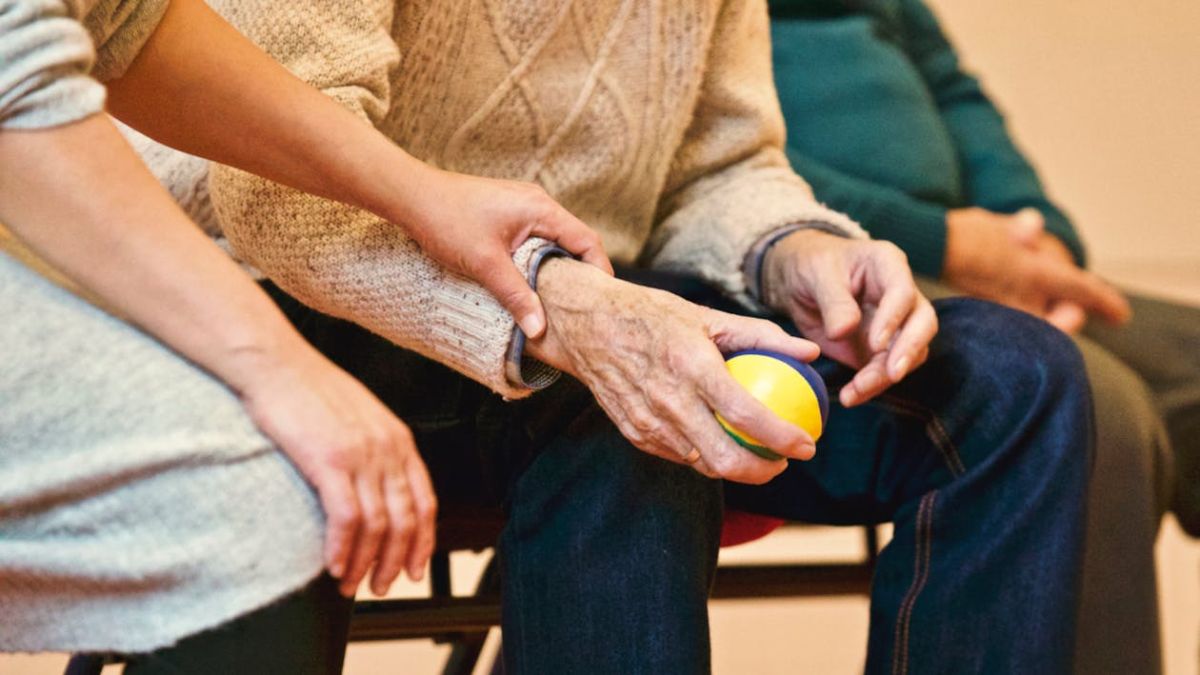Each year in May, older Americans are commemorated with Older Americans Month. After a meeting with the National Council of Senior Citizens, President John F. Kennedy encouraged all Americans to pay tribute to older people across the country by designating May 1963 as Senior Citizens Month. Every president since has issued a formal proclamation during or before the month of May in support of older Americans.
Seniors have come a long way since National Older Americans Month was first established under President Kennedy. At the time, about a third of older adults lived in poverty and there were few programs to meet their needs. Medicare had yet to be created, and only 9% of the population (17 million Americans) , lived long enough to see their 65th birthday. Today, there are more than 49 million seniors aged 65 and up, comprising over 15% of all Americans.
During this Older Americans Month, we take time to recognize the countless contributions that older adults make to our communities. Their time, experience, and talents enrich the lives of those around them. This month, True Care is exploring diverse aging experiences and discussing how communities can combat the stereotypes that surround the topic of aging. This is a great time to think about aging and how we all benefit when older adults remain engaged, independent, and included in our communities.
Behavioral health stigma and ageism
Ageism, which is the common term for the stigma and discrimination related to aging, is everywhere. Older adults are given messages about when they are expected to retire, what they are expected to do, where they are expected to live (and with whom)– often regardless of their wishes, desires, or needs. They’re frequently described as burdens on their families or even on society as a whole.
One example of this is the constant messaging about the burden and unaffordability of Social Security and Medicare, the very supports that enable over 70 million adults in the U.S to survive. These messages fuel the stigma that older people should take a backseat to younger folks, be quiet and fade out of public life. The losses associated with aging such as the loss of loved ones and mobility, combined with a dismissive atmosphere of being older in society can result in increasing isolation, depression, and anxiety; which many older people try to manage with alcohol and overuse of prescription drugs.
Unfortunately, the stigma associated with behavioral health issues often discourages older people from seeking help, and even if they do receive help, stigma can impact the quality of care they receive. As an example, depression and substance abuse can affect cognition, leading to a misdiagnosis of dementia. Additionally, health care providers often do not realize that there is potential for improvement or even cure with this population, highlighting the intersection of stigma regarding both mental illness and aging.
Aging in place
Aging in place allows older adults to retain a higher level of control over their lives, as they can continue to live in familiar spaces. Currently, 90% of adults over 65 want to remain in their current homes as they grow older. Those who are accustomed to satisfying basic needs, such as purchasing food, toiletries, and clothing in their own neighborhoods, often find comfort in being able to manage these necessities independently. Multiple studies advertise the benefits of aging in place for seniors, such as:
- the comfort of home
- family, pets
- social engagement in the community
- cost-effectiveness
- the ability to maintain dignity and independence
Aging in place allows older adults to feel confident that they can continue their lives without frequent assistance. Younger adults can think back to their childhoods to a time when they, too, needed frequent assistance, to empathize with this need more. Young people should also consider that they, too, will be a part of the older population one day. There are multiple societal benefits of aging in place including:
- Economic growth: as the population ages, the number of working-age people declines relative to demand, which in turn increases wages.
- Patterns of work and retirement: Hiring and retaining older workers can help employers retain valuable skills, address workforce shortages, and increase workplace diversity, which can contribute to improved outcomes like increased morale.
- The way that families function: In many cultures, it’s the norm for elderly parents to live at home with their families under the same roof. This custom has been shown time and again to strengthen family bonds and a sense of common purpose. As more American senior citizens choose to “age in place” in multigenerational households, family structures and individual relationships could be transformed with a new degree of richness.
- Less prevalence of chronic disease and disability: Aging in place tends to improve seniors’ quality of life, which improves their physical health. It also insulates them from the bacterial and viral risks found in senior living facilities, reducing their chance of contracting a serious illness.
Experienced in-home caregivers can also optimize the benefits of aging in place. True Care’s trusted, certified caregivers assist with accompaniment and assistance with activities of daily living right in the comfort of the client’s home. Our dynamic team of multicultural health professionals focus on building meaningful connections with their clients and enriching their lives beyond the basic needs of survival.
Aging and culture
Cultural beliefs shape social norms and values surrounding the aging process and the role of older people. These beliefs about aging shift and change as society evolves. In many Western societies, the contemporary notion of ‘aging well’ presumes independence and active contributions. In many other societies, older adults have been encouraged to disengage and to be looked after. Cultural differences in areas like personality, social relationships, and cognition manifest differently across different cultures, which in turn produces cultural differences in the aging process.
True Care understands that culture impacts the experience of aging, that’s why we employ a diverse roster of multicultural caregivers who speak English, Spanish, Mandarin, Cantonese, Russian, Bengali, Creole, Italian, and Arabic. Whether it’s in our workplaces or our homes, having more older adults around could lead to an increased respect for their unique backgrounds. This could catalyze a more balanced and diverse set of societal norms, resulting in a better quality of life for seniors
Why older Americans matter
The older Americans act (OAA) was passed in 1965 as part of President Johnson’s “Great Society” initiative with the goal of supporting older Americans to live at home and in their communities with dignity and independence for as long as possible. The OAA currently supports a wide array of programs and services, including:
- information and referral programs
- home-delivered meals
- health and wellness programs
- in-home care
- transportation
- elder abuse prevention
- caregiver support
- adult day care
The OAAs programs are in every state and almost every Congressional district in the U.S. It operates through a vast network consisting of state offices of aging, area agencies on aging and thousands of private and public service providers. The Act stresses local decision-making on what are the best and most needed services for older adults.
A great way to begin, for any older adult, is to prepare themselves to age in place. Whether this is their preferred choice or not, the preventive measures for aging in place can be useful for remaining healthy in general as we age. These include:
- Complete a home safety check: Make sure the house, apartment or townhouse is set up to be a safe and easy place to get around by doing a home safety check to reduce future risk of an accident or a fall. Some easy modifications include non-slip floor surfaces, grab bars in bathrooms, lever-handle door knobs, and personal alert systems to call for help in emergencies.
- Prioritize health: Staying in good physical shape is crucial in helping ourselves remain independent at home for as long as possible. Maintaining a heart-healthy lifestyle which includes a balanced diet, regular exercise, and minimized stress can help ward off serious health conditions such as heart disease, arthritis, dementia, and depression.
- Learn technology: Getting well acquainted with smartphones or digital tablet’s messaging and video screen sharing programs can help keep us connected from the comfort of home. It’s also useful to find out what’s going on in the community and access helpful services such as grocery delivery and taxi services.
- Look into long-term care insurance: Getting older comes with changing health needs, and most of us who age at home will ultimately need some form of long term care. Currently, Medicare does not pay for ongoing long-term home care, so looking into alternatives such as long-term care insurance may be a good option. This type of insurance helps pay for the cost of care generally not covered by health insurance or Medicare, and it will make a big difference when the time comes to consider a caregiver at home.
- Make a plan for care: Not only is it beneficial to prepare financially for any future home care needs, it also helps to have a plan for who will be there to care for us. True Care’s services help with just this. We are prepared to help healthy individuals anticipating that their needs will change as they age. Signing up now can provide peace of mind in knowing who to call if a crisis occurs, or if it’s time to consider a little extra help at home.
By taking these steps now, those who will eventually age in place can live the life they want at home now and in the years to come.
Conclusion
As we age, we gain something that can only be acquired with time; wisdom. Older people possess the quality of having experience, knowledge, and judgment. With age comes a greater sense of acceptance of self and of others, and life experiences that help us make smart decisions. Wisdom, empathy, and gratitude are all available to us as we grow older, and they are important values to uphold.
Older relatives strengthen families with an unconditional love that frames the history of the extended family and shapes the future of younger generations. They provide a wealth of traditional knowledge, strengthen social cohesion, and help to develop positive attitudes. They are the ideal mentors. From all the experiences they have accumulated over the years, they can judge a situation and give constructive advice to their children and grandchildren. They also play an important role in solving disputes among family members as mediators and important reminders of the strength of family ties.
This older Americans month, people should take the time to reflect on how they contribute to ageism and stigmas around aging, and be more mindful about how they are addressing and thinking about older people in a wider context.





